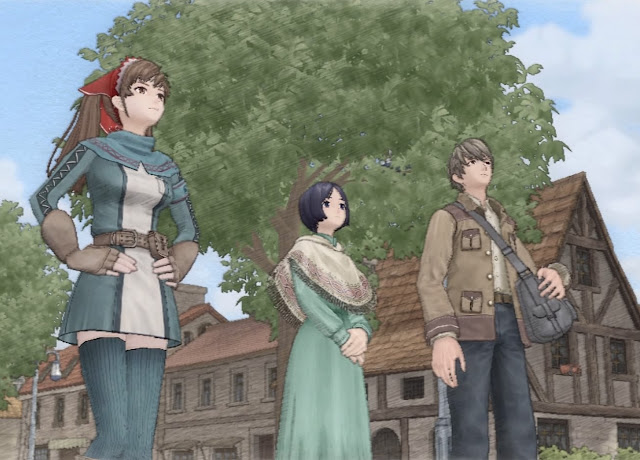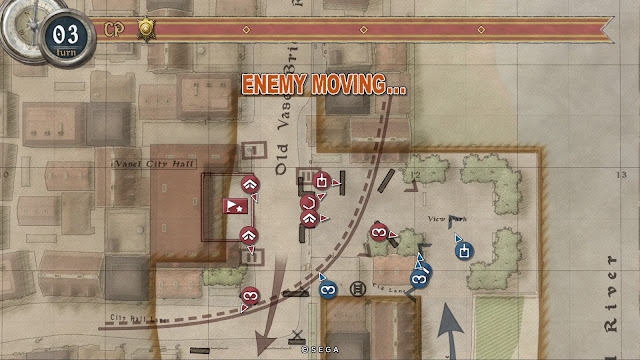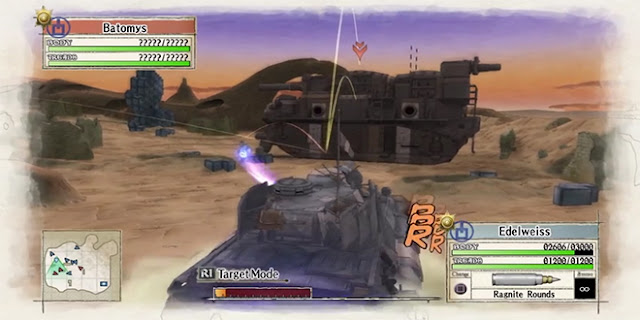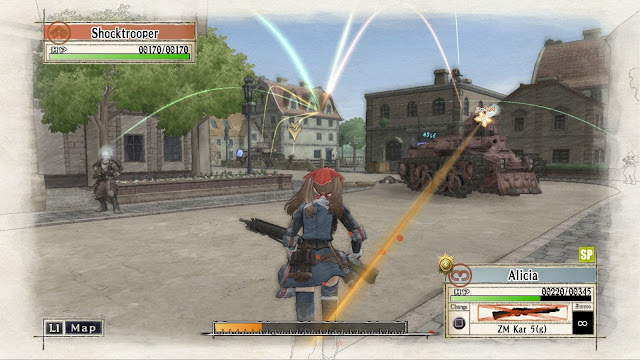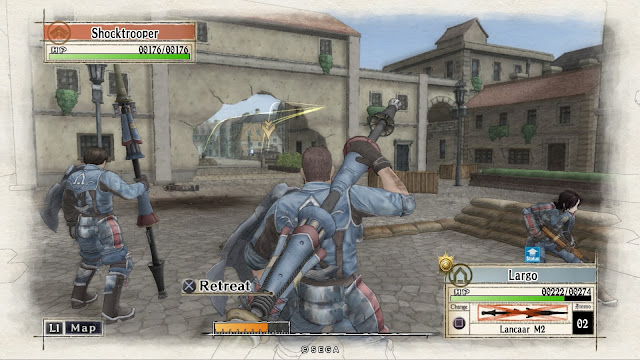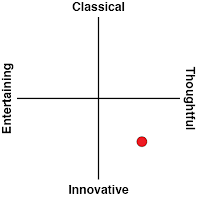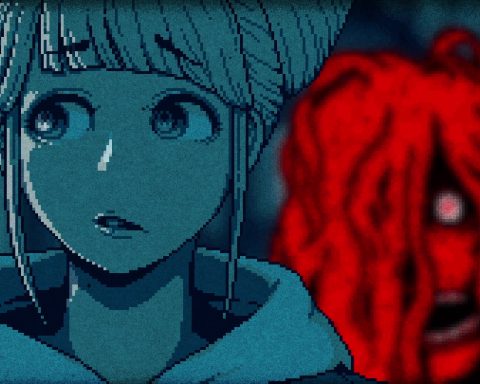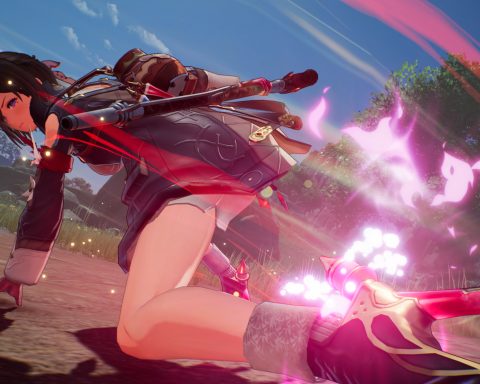Review by Matt S.
It’s good that SEGA saw fit to remaster Valkyria Chronicles for the new generation of console hardware. Not because it’s necessarily prettier with this new release; the game was already a timeless masterpiece of art direction on the PlayStation 3, and the PlayStation 4 hasn’t enhanced that side of things in any significant way. It’s also not a must-have because there’s additional content in this game, though that’s always welcome.
Related reading: It’s not exactly the same, but fans of Valkyria Chronicles should find something worthy in Lost Dimension, too. Matt’s full review.
No, it’s good that SEGA has re-released Valkyria Chronicles for the simple reason that this game needs to be accessible on current players. With the PlayStation 3 now effectively retired, we’re going to start “losing” the classics on that console unless a developer goes to the effort to rebuild and re-release them, and there are some games, like Valkyria Chronicles, that are simply too important, and we really shouldn’t be losing them.
At its very core, Valkyria Chronicles is an anti-war story. But not in the way you might think; this one chooses to oppose war by proving the resilience of the good of humanity in the face of hardships. Set in an alternative universe, but with a message that is entirely relevant to our world, Valkyria Chronicles’ plot kicks off with the increasing scarcity of an important resource sparking the equivalent to World War 2, with two mighty empires clashing along a front that divides Europe into two. Unfortunately for a small, neutral nation right in the middle of things, its abundant deposits of that resource makes it a very attractive target for invasion, neutrality be damned, and the Soviet Union-style forces of the east initiate an invasion. Overwhelmingly outnumbered and outgunned, the player assumes control of a band of militia that are sent on increasingly dangerous missions to repel the invasion.
On the surface of things the game doesn’t do nearly enough to represent the horror of war. It does glorify the exploits of the militia, and it does reduce the enemy forces to a horde of unthinking villains, led by a brutal and sadistic general. As a result, it has a fairly strong patriotic bent, but it’s a justifiable one, as there is certainly something intensely noble about defending your homeland. But the real nuance comes from the way the game presents the inter-personal relationships between the squadmates.
Valkyria Chronicles doesn’t flinch from showing the impact that war has on people and communities; important characters do die, and it’s affecting when they do. There are hurtful betrayals, jealously, painful sacrifices, and for all the superhuman powers that show up through the game, the way the characters respond to these events are deeply human in tone; the writing and performance of the roles is spot on, and I can’t imagine a single person going through the game and not being emotionally affected on some level.
Equally importantly, and the real key to the success of this title, is the way that the narrative also shows the indomitable and positive qualities of humanity when up against the most hideous of situations. The sorry band of misfits that you’re in control of might be fighting a war, but they also develop relationships, and even fall in love. The game’s writers also have a sense of humour that balances delicately between the surreal and the absurd, and that humour, juxtaposed against the tragedy and realities of war, really pulls players through an emotional rollercoaster, with precision-timed ebbs and flows to ensure that you never quite get to settle into a comfortable rhythm. This is a game that absolutely demands attention at every moment, and it becomes difficult to put down as a result – you don’t want to actually break the rhythm.
And then there’s the frequent moments in which the narrative speaks of hope. The leader of the band – the main hero – is presented as a sentimental fellow that has a deep respect for – and love of – nature. He is fighting to restore the world to an equilibrium as much as he is to protect his homeland. Without giving away the plot, there’s also the traditional motif of birth to represent a renewal and hope for the future. The point is that Valkyria Chronicles is a layered, nuanced narrative which understands on a deep and fundamental level how to manipulate emotion to illicit a genuine connection between the audience and the events within the game. That it’s heavily political without ever feeling heavily political is testament to the subtlety of the writing, and marks it out as truly one of the superior war stories we’ve ever seen told in a game.
Japan has seen both sides of the worst of war, in World War 2 alone. Its invasion of mainland Asia was done for the wrong reasons, and the behaviour of its military through that conflict was reprehensible. But, equally, the Japanese civilians experienced the indefensible terror act of having nuclear bombs dropped on them. This reality gives the Japanese an almost unique outlook on the impact of war from being part of both extremes; they understand with utter sadness for war to be something where there in no winners, and they understand the resilience that’s needed to recover from the fallout from war. Amazingly, the militant nation that for ages placed the value of its elite warriors ahead of all other levels of politics rapidly developed a cultural pacifism following World War 2; when the prime minister of Japan, Shinzo Abe, pushed through legislation to remove from law the inability for Japanese forces to fight in overseas conflict, the protests within Japan were massive.
It is this cultural context that has given Valkyria Chronicles a tone that I don’t think could be recreated within western ideology. The war is necessary, else conquest is inevitable, and the defenders were patriots and heroes, but over and over again we see a reluctance that the war needs to be fought at all, and almost universally the heroes would like nothing more than to hang up their military boots. There’s a distinction between necessity and glory in war that I don’t necessarily think the typical western studio understands or is concerned with.
All this narrative depth is just the start. We haven’t even started to talk about how, given the increasing scarcity of key resources, such as oil, in the real world, the genesis of Valkyria Chronicles’ conflict being over rare, essential essentials is as poignant now as it was back then. This is one of those rare games where you can make multiple different readings into its meaning and narrative weight. I’ll stop here, else I could go on for ever, but I’d be very interested to hear your own interpretations on the Valkyria Chronicles narrative.
As a game, Valkyria Chronicles is right up there with the best tactical strategy games that has ever been developed, and that’s partly because the game is so unique in how it approaches the genre. Characters move around the battlefield and fire at one another in a turn-based fashion, and that’s nothing we haven’t seen before. Where things become interesting is in the real time response elements; if a character, on its turn, comes into sight and range of an enemy, that enemy will start auto-firing at the character, and damage can pile up quickly.
So each battle quickly becomes an exercise in rhythm, where you’ll direct characters to move from cover to cover and try to keep them out of too many crossfires as you work into positions that allow you to take the enemies out. It almost – almost! – feels like a blend between shooter and tactical RPG in places.
There are only a handful of different classes to choose between – from the nimble scout to the long ranged sniper, and the precious, powerful tank, and utilising each of those characters effectively is essential to success. This is a lengthy, draining game, and it knows how to be difficult. It’s one that demands patience, but because you’re so attached to the characters from that narrative, being able to pull them all through what seems like an impossible battle really does feel like a major victory.
The game’s battle maps are designed perfectly too, which makes discovering each of them a reward into itself. Each map has the room to enable a fairly diverse range of strategies to take on the enemies, and while the general difficulty of the game will force player into working to one of a couple of different best practices, it’s still pure tactical gold to watch a battle play out between tanks and rockets on the ground while a sniper perched on a nearby building is clearing away the infantry safely, and scouts are keeping an eye out for flanking.
The art direction does deserve a mention, too, as it makes heavy use of a hand-drawn “pencil” aesthetic that is both incredibly appealing on the eye, and entirely fitting with the games’ broader themes. This unique and cheerful aesthetic helps to prevent the darkest moments from tipping over the edge into melancholia, and at other times gives the game a humble, pastoral aesthetic, which helps to reinforce the pastoral innocence of the main heroes in the militia. The hand-drawn aesthetic also lends itself well to the comic book-like sound bubbles that pop up to reinforce the drama of the action.
And the character design is just wonderful, with every single character having a distinct personality represented purely within their look and mannerisms. Leading man, Welkin does look like a clean cut hero that simply doesn’t belong on the battlefield, but is intelligent enough to excel as a leader anyway. Alicia, his second-in-command, is one of the most beautiful and interesting female characters you’ll ever see in a game. She’s not sexualised, but she’s a powerful example of femininity. Importantly, that doesn’t come at the expense of her physical abilities, which have not been compromised under the argument that ‘she’s a woman’. Alicia is every bit the clean-cut and capable hero that Welkin is. I want more characters like Alicia.
Valkyria Chronicles is, simply, one of the best tactical games you’ll ever play. It’s serious, but doesn’t take itself too seriously. It’s emotionally compelling while never losing sight of the fact it’s also a game. It’s a popular and well-regarded game that, for whatever reason, people simply don’t talk about it enough. Hopefully with this PlayStation 4 release that will change.
– Matt S.
Editor-in-Chief
Find me on Twitter: @digitallydownld

